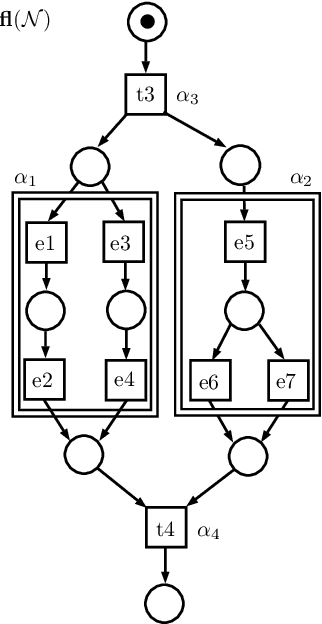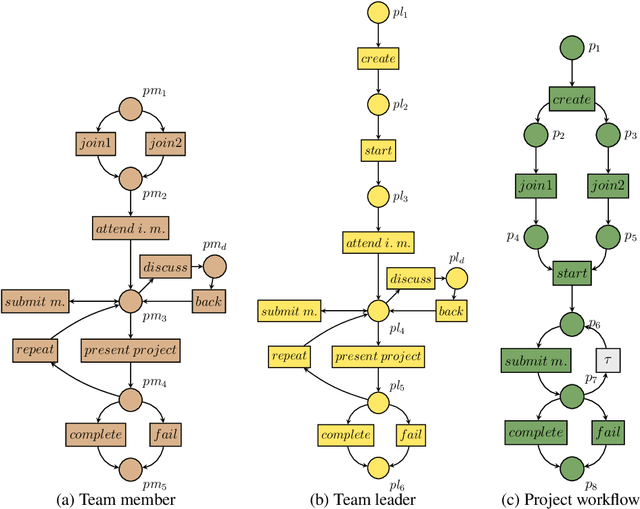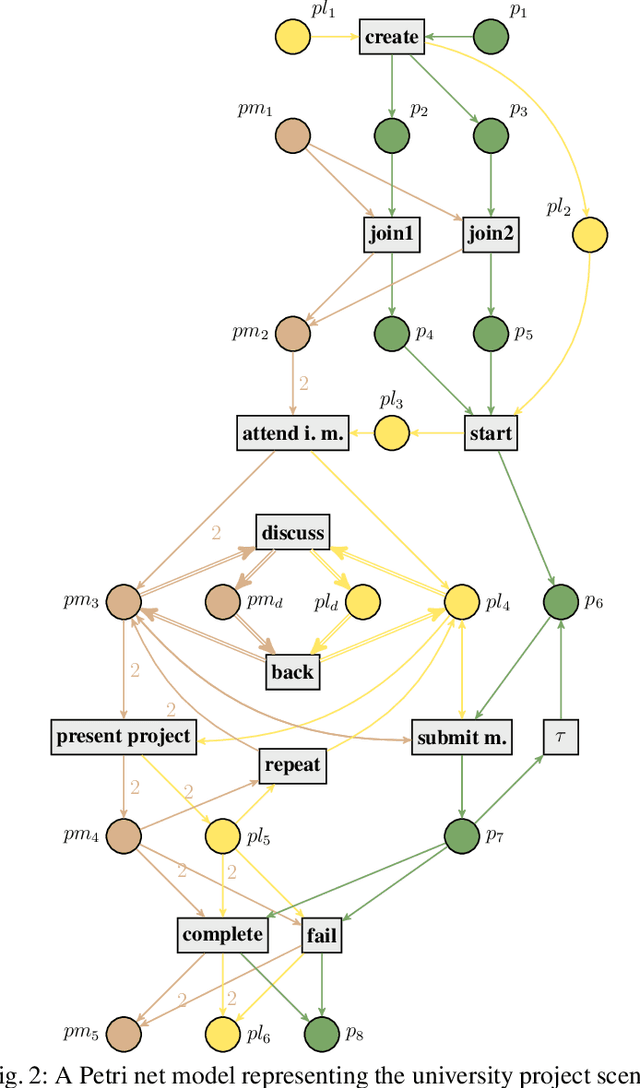Irina A. Lomazova
Discovering Hierarchical Process Models: an Approach Based on Events Clustering
Mar 12, 2023



Abstract:Process mining is a field of computer science that deals with discovery and analysis of process models based on automatically generated event logs. Currently, many companies use this technology for optimization and improving their processes. However, a discovered process model may be too detailed, sophisticated and difficult for experts to understand. In this paper, we consider the problem of discovering a hierarchical business process model from a low-level event log, i.e., the problem of automatic synthesis of more readable and understandable process models based on information stored in event logs of information systems. Discovery of better structured and more readable process models is intensively studied in the frame of process mining research from different perspectives. In this paper, we present an algorithm for discovering hierarchical process models represented as two-level workflow nets. The algorithm is based on predefined event ilustering so that the cluster defines a sub-process corresponding to a high-level transition at the top level of the net. Unlike existing solutions, our algorithm does not impose restrictions on the process control flow and allows for concurrency and iteration.
Soundness in Object-centric Workflow Petri Nets
Dec 30, 2021



Abstract:Recently introduced Petri net-based formalisms advocate the importance of proper representation and management of case objects as well as their co-evolution. In this work we build on top of one of such formalisms and introduce the notion of soundness for it. We demonstrate that for nets with non-deterministic synchronization between case objects, the soundness problem is decidable.
 Add to Chrome
Add to Chrome Add to Firefox
Add to Firefox Add to Edge
Add to Edge